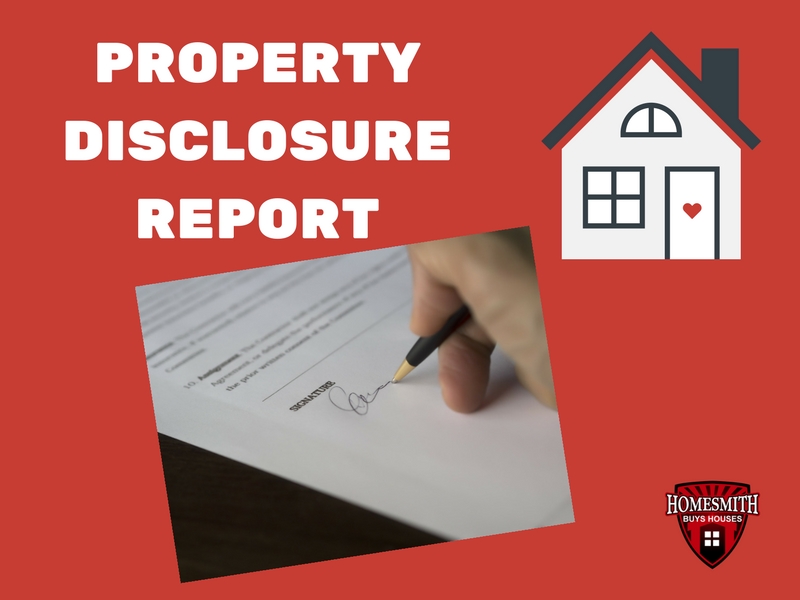
Real estate disclosures can often raise numerous questions for both buyers and sellers. Our guiding principle is straightforward: transparency is key. In our most recent blog post, we delve into the legal requirements surrounding real estate disclosures, ensuring that both parties understand what needs to be shared. From property defects to environmental hazards, we outline the essential information that must be communicated to uphold integrity and protect all involved in the transaction. By being forthright and upfront about real estate disclosure, buyers and sellers can navigate the process with confidence and trust, fostering a smoother and more successful real estate experience for everyone.
Real estate disclosures are paramount in establishing trust and credibility as a seller. Being open and honest about Real estate disclosures not only mitigates the risk of legal action but also cultivates a reputation for integrity. Concealing property defects, pending repairs, or other issues may seem tempting, but the repercussions can be significant. Whether it’s facing a lawsuit or simply experiencing the consequences of karma, maintaining transparency ensures a smoother transaction process and fosters positive relationships with buyers.
Most real estate lawsuits occur because of non-disclosure.
So exactly how much are you required to disclose legally? Basically, anything that can affect the value of the property. Here are just a few of the things you should address:
- Issues with the land, such as drainage, bad soil, and potential for flooding. Bad soil can limit building and low-lying areas can be prone to flooding and water damage.
- Foundation level and known cracks must be disclosed. If the house settles more than it already has, it could experience structural damage.
- Plumbing problems, sewer issues, and leaky pipes all need to be brought to the forefront. Some of the most expensive home repairs stem from water damage.
- Any problems or irregularities with the heating and cooling systems should be addressed.
- If you have a problem with cockroaches, rats, ants, termites or moles, you will need to inform your potential buyer.
- Have a leaky roof or missing shingles? Tell your buyer before they find out during a rainstorm.
- Lead paint is a no-brainer. This disclosure is one of the most common you will see with home sales and rentals.
- Are there issues that will affect the title? Or rightful ownership? This needs to be spelled out up front, not during the closing process.
- You should also have documentation for repairs and insurance claims you’ve made in the past. You should be able to describe what was done and the materials used.
Additionally, some states will require more in-depth disclosure of hazard zones which include flooding, earthquakes and other environmental factors affecting the land. Some states will also require any violent crimes committed in the home be common knowledge. Not every state requires this, but it is a good rule of thumb to follow. Think about what you would want to know if you were buying a home for yourself!
Disclosures help a buyer learn as much as possible about a house before making their purchase.
You are selling a great home right? When you keep something to yourself, a minor, needed repair can snowball in much bigger problems. Many properties have something pop up during the inspection that the seller wasn’t prepared for. Imagine, your asking price slashed because of a defect you were unaware of. Your house is a multi-faceted machine. Many sellers choose to have their home inspected prior to a sale. This allows them to make the necessary repairs ahead of time, lessening potential buyer’s bargaining ability. An inspection will also show good-faith in selling. You are telling the world you want your home to be in the greatest possible condition before it is sold.
Disclosure rules vary state to state. Your agent, attorney or broker will be able to supply you a checklist that covers the requirements for your state. Review the list in its entirety and add as many detailed notes as possible. Don’t forget to include the dates of upgrades and repairs. Fill out the form as honestly and as completely as possible. If you have questions, it is best to talk to a lawyer instead of your agent. Your agent might avoid such questions as they are out of their scope, and they want to lessen their liability.
Remember, YOU CAN GET SUED for being dishonest.
Real estate disclosures can often raise numerous questions for both buyers and sellers. Our guiding principle is straightforward: transparency is key. In our most recent blog post, we delve into the legal requirements surrounding real estate disclosures, ensuring that both parties understand what needs to be shared. From property defects to environmental hazards, we outli
- 5 Tips For Selling Your Mobile Home In Dallas
- 4 Improvements to Make Before Selling Your Mobile Home In Dallas
- How To Get The Best Price For Your Manufactured Home in Dallas
- 4 Benefits of Selling A Mobile Home To A Dallas Investor
- Pro and Cons of Hiring an Agent vs. Selling to an Investor in Dallas
Are you selling your home in Dallas? If you have questions, we have answers! Fill out this form, or give our office a call now! (214) 989-4949
Recent posts you might like…
- 5 Tips For Selling Your Mobile Home In DallasSelling your mobile home in Dallas can be a quick and easy process when you have a plan in place. While certain selling methods work for some homeowners, others are better served in other ways! There are many routes you can take when it comes to selling. Learn more about your options and get our … Continued
- 4 Improvements to Make Before Selling Your Mobile Home In DallasBefore selling your mobile home in Dallas, there are improvements you can make to add value to your property. Learn about these improvements and the selling options available to you in our latest post! #1 – Make It Energy Efficient People are often drawn to the allure of mobile homes due to the promise of … Continued
- How To Get The Best Price For Your Manufactured Home in DallasWhen selling your manufactured home in Dallas, you’ll want to get the best price possible without having to have it on the market for a long time. In our latest post, we offer some tips to do just that! Selling a manufactured home can present unique challenges compared to selling a traditional single-family home. The pool of … Continued
- 4 Benefits of Selling A Mobile Home To A Dallas InvestorIf you want to sell a mobile home in Dallas or the surrounding areas, turning to a professional investor may not have even been on your radar. However, many investors, such as the team at Higher Home Buyer, pay excellent prices and can make the process quick and easy instead of a long and drawn … Continued
- Pro and Cons of Hiring an Agent vs. Selling to an Investor in DallasReady to sell your house in Dallas or the surrounding areas? Learn more about the pros and cons of hiring an agent vs. selling to an investor in Dallas! What many homeowners may not fully grasp is the breadth of options available when it comes to selling their property. While the traditional route of hiring … Continued

